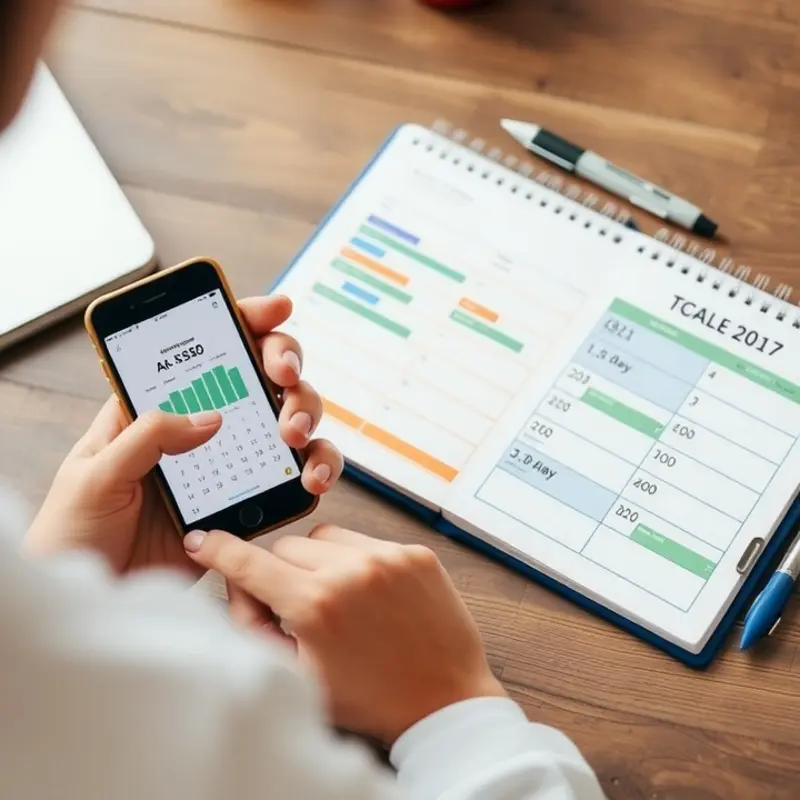Finding the perfect apartment is an exciting milestone, whether you’re a young professional starting your career, a student heading off to college, or a couple establishing a new home. However, once the lease is signed, the reality of an apartment payment schedule sets in. It’s crucial to understand how rent affects your budgeting, plan for additional costs, and set a timeline that aligns with your financial situation. Managing your payments can make the difference between a smooth apartment experience and financial stress. With a little organization and foresight, you can master your apartment payment schedule. From setting aside funds to navigating lease terms—this guide offers practical advice aimed at helping young professionals, first-time renters, students, couples, and families find financial clarity. Let’s ensure your new home is a source of joy instead of anxiety.
Understanding Your Lease Agreement

Navigating a lease agreement successfully is a critical skill for any renter. It serves as the roadmap for your payment schedule and highlights other financial responsibilities. Understanding these details can save you from unexpected financial strain.
When you begin reviewing your lease, identify how often rent is due. The most common approach is monthly, but some leases might specify quarterly or annual payments. This can significantly affect your budget planning. Be proactive—create a calendar reminder for each due date to avoid missed payments.
Next, scrutinize the details on due dates and grace periods. A typical grace period might be a few days past the due date, allowing some flexibility. Understanding penalties for late payments is also crucial. These can range from a flat fee to a percentage of your rent, which can quickly add up. Building this into your initial budget planning is sensible, serving as a cushion against unforeseen financial circumstances.
Moreover, hidden costs can sometimes lurk in the details of an agreement. Ask yourself if utilities, parking, and maintenance fees are included, or if they’re extra expenses. For instance, renters might assume that utilities come included, only to discover separate charges later. A keen eye on these specifics is essential, ensuring no unpleasant surprises when your bill arrives.
To organize this information, documenting the notable points related to payments is a good strategy. A checklist or organized notes can aid you whenever questions arise. This approach ensures all the critical points from your lease are at your fingertips, easily accessible whenever needed.
Additionally, consider visiting online resources that tackle common renter issues. One helpful resource is this guide on resolving rental billing errors, which could provide insights into managing common financial disputes in rental agreements.
This foundational understanding of your lease is key. It equips you to plan your financial management effectively, aiming to void financial missteps. With these strategies in place, you can proceed with confidence, knowing you’ve laid the groundwork for informed and effective financial management.
Creating a Payment Schedule

Once you’ve thoroughly reviewed your lease agreement, it’s crucial to embark on the next step: creating a structured payment schedule. Start by clearly marking your rent due date on a calendar. This date might be the first of the month or perhaps another specific day agreed upon in your lease. It’s advisable to set up reminders at least a week in advance, whether through digital alerts or physical notes, ensuring that the due date is always on your radar.
Budgeting effectively is another fundamental aspect of managing your rent payments. A practical approach is to divide your monthly income by the number of days until rent is due. Some renters find it easier to set aside a small percentage of their paycheck each time they get paid, gradually accumulating the necessary funds without scrambling at the last minute.
Rent isn’t the only expense you’ll have, so it’s important to consider all related costs. Utilities such as electricity, water, and gas, along with internet and renter’s insurance, can significantly impact your budget. Allocating a specific portion of your monthly income to cover these expenses will prevent unexpected financial stress.
Incorporating technology can greatly simplify tracking these payments. Numerous budgeting apps allow you to categorize expenses, set up automated reminders, and track your spending in real-time. This digital assistance ensures you maintain clarity over your financial obligations and adhere to your payment schedule. Additionally, consider reviewing resources that offer tips and insights on renter credit improvement, such as this guide, to enhance your financial management skills further.
Regularly reviewing and adjusting your budget based on your expenditure and income changes is essential. By understanding your spending habits, you can streamline your payment schedule. This proactive approach not only aids in paying rent on time but also supports overall financial wellness. By embedding these practices into your routine, you’ll master your apartment payment schedule with ease and confidence.
Final words
Managing your apartment payment schedule doesn’t have to be overwhelming. By understanding your lease agreement and establishing a clear payment schedule, you can alleviate financial stress and maintain peace of mind in your new living space. Don’t hesitate to revisit your budget regularly, making adjustments as needed. With planning, foresightedness, and a proactive approach, your apartment can be a wonderful haven rather than a financial burden.









